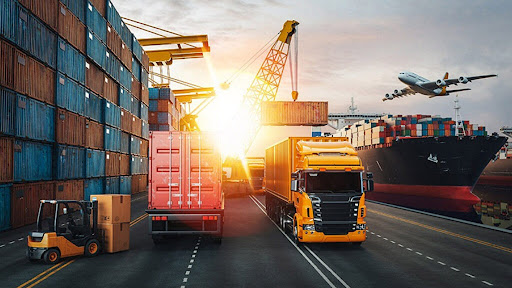
7 Innovative Technologies Transforming Logistics Solutions
In the fast-paced world of logistics, technology is revolutionizing how goods are transported, tracked, and delivered. Companies are constantly seeking innovative solutions to optimize their supply chains, reduce costs, and enhance customer satisfaction. Here are seven groundbreaking technologies that are transforming logistics solutions company today.
1. Internet of Things (IoT) for Real-Time Tracking
The Internet of Things (IoT) has become a game-changer in logistics. By embedding sensors in vehicles, packages, and equipment, logistics companies can gather real-time data on the location, condition, and status of shipments. This information enables better route planning, proactive issue resolution, and enhanced visibility throughout the supply chain. IoT-powered logistics solutions offer increased efficiency and responsiveness, leading to improved customer service and reduced operational costs.
2. Artificial Intelligence (AI) for Predictive Analytics
Artificial Intelligence (AI) is reshaping logistics by providing predictive analytics capabilities. AI algorithms analyze vast amounts of historical and real-time data to forecast demand, optimize inventory levels, and anticipate potential disruptions. AI-driven predictive analytics help logistics companies make data-driven decisions, streamline operations, and minimize risks associated with supply chain disruptions, ultimately improving overall efficiency and resilience.
3. Autonomous Vehicles for Last-Mile Delivery
Autonomous vehicles, including drones and self-driving delivery robots, are transforming last-mile logistics. These vehicles can navigate urban environments efficiently and deliver packages directly to customers' doorsteps. By leveraging autonomous vehicles for last-mile delivery, logistics companies can reduce delivery times, lower costs, and enhance the customer experience. The scalability and flexibility of autonomous delivery solutions make them ideal for meeting the growing demand for e-commerce deliveries.
4. Blockchain for Supply Chain Transparency
Blockchain technology offers enhanced transparency and security in logistics operations. By providing an immutable and decentralized ledger, blockchain enables end-to-end traceability of goods throughout the supply chain. This transparency helps prevent fraud, optimize inventory management, and ensure compliance with regulations. Blockchain-powered logistics solutions build trust among stakeholders and facilitate smoother transactions between parties, fostering a more efficient and secure supply chain ecosystem.
5. Robotics for Warehouse Automation
Robotic automation is revolutionizing warehouse operations. Advanced robots can perform tasks such as picking, packing, and sorting goods with speed and precision. By implementing robotic solutions, logistics companies can increase warehouse productivity, reduce labor costs, and minimize errors in order fulfillment. Robotics also enhance workplace safety by handling repetitive and physically demanding tasks, allowing human workers to focus on more complex operations.
6. Augmented Reality (AR) for Enhanced Training and Operations
Augmented Reality (AR) technology is reshaping logistics by improving training programs and optimizing operational efficiency. AR applications enable workers to receive real-time instructions and visual cues directly within their field of view, enhancing productivity and reducing errors. In logistics, AR is used for tasks such as order picking, inventory management, and maintenance. By integrating AR into daily operations, logistics companies can streamline processes, reduce training time, and boost workforce productivity.
7. Predictive Maintenance with Internet of Things (IoT)
Predictive maintenance powered by IoT is revolutionizing equipment management in logistics. By leveraging IoT sensors and AI algorithms, logistics companies can monitor the condition of vehicles, machinery, and infrastructure in real time. Predictive maintenance predicts equipment failures before they occur, allowing proactive maintenance to prevent costly downtime and disruptions. This approach maximizes asset utilization, extends equipment lifespan, and reduces maintenance costs, ultimately optimizing logistics operations.
In conclusion, these seven innovative technologies are reshaping the logistics solutions company, offering unprecedented opportunities for efficiency, transparency, and customer satisfaction. By embracing these technologies, logistics solutions companies can stay ahead of the curve, drive operational excellence, and deliver exceptional value to their customers in an increasingly competitive marketplace. As technology continues to evolve, the logistics landscape will continue to transform, enabling more agile, resilient, and sustainable supply chain operations.